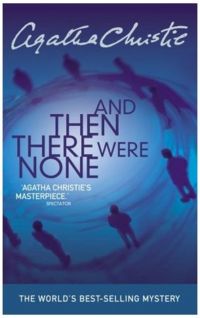The Golden Age of Murder
by Martin Edwards
Crime fans know better than anyone that appearances can be deceptive. And that idea is at the heart of The Golden Age of Murder, my just-published study of the British crime novelists who dominated the genre between the two world wars. There’s a widely held view that those writers were cosy, conventional folk who wrote cosy and conventional books. But the more I researched the men and women who wrote the best Golden Age mysteries, the more I became convinced that the truth was rather different – and much more enthralling.
I write crime novels set in the here and now, but I’ve always loved the ingenious traditional murder mysteries. Like so many other people around the world, my introduction to adult fiction was through the books of Agatha Christie, a writer whose work I still love. From her I graduated to Dorothy L. Sayers, and then other great names of the era, such as Margery Allingham, Ngaio Marsh, and Anthony Berkeley.
Later I discovered that those writers, and a good many others whose books I enjoyed, were members of the Detection Club, a select and rather mysterious organisation which exists to this day. Led by Berkeley (who founded the Club) and Sayers, members yearned to raise the standard of crime writing, and strove to ensure that their own work was fresh and inventive.
Sayers, for example, wanted to take the genre in a new direction, and with a fellow Club member, Robert Eustace, she produced The Documents in the Case, an ambitious book in which Lord Peter Wimsey did not appear. Writing as Francis Iles, Berkeley became the standard-bearer for the novel of psychological crime – the first Iles book, Malice Aforethought, remains a genre classic, and the second, the dark and deeply ironic Before the Fact, was filmed by Alfred Hitchcock. But Club members also remained true to the game-playing spirit of the times. They collaborated in “round-robin” mysteries such as The Floating Admiral, each writing a chapter in turn. The book enjoyed critical and commercial success, which was repeated when it was republished recently
I became fascinated by the relationships between the writers – long before the days of blogs, Twitter and Facebook, the Detection Club was a remarkable social network. Seven years ago, I was elected to membership of the Club myself, and was asked to look after the Club’s archives. But since very little had been retained over the years, really I had to become a detective, finding out about the Club’s history. I talked to experts across the world, and travelled around, tracking down descendants of those early Club members.
Fresh mysteries kept arising, crying out for a solution. The Club’s members obsessed about their personal privacy, and many of them hugged dark and disturbing secrets. One pioneering novelist even made diary entries in an unbreakable code, so nobody could decipher what was in his mind. Clever people, well-versed in the art of mystification, Detection Club members deployed their skills to obscure the trail for anyone seeking to learn more about them. Agatha Christie’s controversial eleven-day disappearance in 1926 is by far the most high profile of the numerous disasters that befell Club members, and affected their writing as well the future course of their lives.
In The Golden Age of Murder, I’ve set out to solve the mysteries of the writers who in many ways were responsible for inventing the modern detective novel. It’s been an engrossing quest, and my greatest hope is that it will encourage people who have, in the past, been dismissive of traditional detective fiction to think again. Of course, plenty of bad books were written in the Golden Age, as in every age, but the best work of the time was exhilarating, innovative - and unforgettable.




Sounds like an interesting book. And the Detection Club sounds really interesting too.
ReplyDeleteI'm a major fan of the golden age, particularly Sayers and Christie. Wracking my brain, but I can't recall hearing about The Detection Club and I've got to add this new book to my shelf. Thanks Martin and Rob.
ReplyDeleteAlthough the writers of today are entertaining, I prefer the older stories, the flapper and prewar settings, and wonderful characters. I think I would enjoy this books.
ReplyDeleteThey wrote some great novels, and I think some of it is that they (1) wanted to make mysteries literature and (2) worked together. And they had such distinctive voices!
ReplyDeleteRob, thanks very much for letting me be part of this great blog.
ReplyDelete